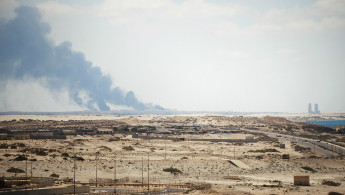Libya unity rivals seize final port in 'oil crescent'
The battle for control of Libya's oil assets has renewed fears of a civil war in the country, which plunged into chaos after the 2011 uprising that toppled and killed dictator Muammar Gaddafi.
The UN-backed Government of National Accord based in Tripoli is struggling to assert its authority and has been facing staunch resistance from a rival administration based in Libya's remote east.
Military strongman General Khalifa Haftar on Sunday launched an offensive on Libya's "oil crescent" along the northern coast.
His forces fought off guards to gain control of the oil terminals at Ras Lanuf, Al-Sidra and Zuwaytania, and they finally secured Brega unopposed on Tuesday.
"We have taken control of the Brega port completely and without any fighting," said Colonel Muftah al-Muqarief, who heads oil guards loyal to Haftar.
"The entire oil crescent region is now under our control," Muqarief told AFP.
Brega was taken largely thanks to "mediation involving residents and town elders", he said.
The loss of Brega is a fresh blow to the GNA.
Haftar, 73, who sees himself as Libya's saviour after battling extremists out of most of second city Benghazi in the east, backs the parliament which has refused to grant the GNA a vote of confidence.
The Brega takeover comes hours after the United States and its major European allies – which back the GNA – condemned Haftar's offensive, echoing remarks by UN special envoy Martin Kobler.
"I call for the respect of UN Security Council Resolution 2259 which recognises the Government of National Accord... as the sole executive authority in Libya," Kobler said Monday.
Oil is Libya's main natural resource with reserves estimated at 48 billion barrels, the largest in Africa, but production has plummeted since 2011 as the country plunged into turmoil.





 Follow the Middle East's top stories in English at The New Arab on Google News
Follow the Middle East's top stories in English at The New Arab on Google News
![Israeli forces ordered bombed Gaza's Jabalia, ordering residents to leave [Getty]](/sites/default/files/styles/image_330x185/public/2176418030.jpeg?h=a5f2f23a&itok=_YGZaP1z)

